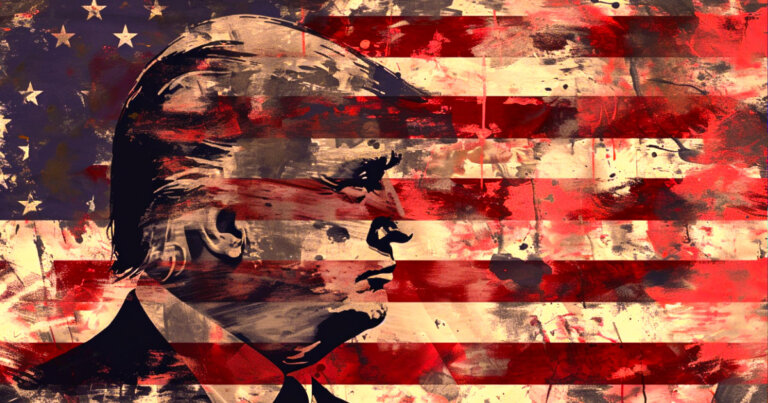 Trump calls CDBCs “very dangerous” and labels the power of AI “scary”
Trump calls CDBCs “very dangerous” and labels the power of AI “scary” Trump calls CDBCs “very dangerous” and labels the power of AI “scary”
Trump said that CBDCs could be "very dangerous" but the biggest danger of our time is the proliferation of AI.

Cover art/illustration via CryptoSlate. Image includes combined content which may include AI-generated content.
Former President Donald Trump expressed significant concerns about central bank digital currencies (CBDCs) and advancements in artificial intelligence (AI) during an interview on Fox’s Sunday Morning Futures.
With the Republican Party potentially nominating him for the 2024 presidential election, Trump’s critical views on these issues are capturing widespread attention.
CBDCs: A Pathway to Government Surveillance
Trump sharply criticized CBDCs, portraying them as mechanisms that could enable increased government surveillance and control over individuals’ finances. He said:
“It can be a very dangerous thing.”
He vividly described a future where CBDCs compromise personal autonomy, serving as tools for potential government overreach. Maintaining a consistent stance, Trump argued that CBDCs pose a significant risk to personal privacy and the foundational principles of freedom and autonomy.
His firm opposition to CBDCs aligns with his broader economic narrative that prioritizes the protection of personal freedoms against the threat of government tyranny. Trump has positioned himself as a staunch opponent of CBDCs, warning that they could lead to scenarios where the government might empty individuals’ accounts without notice.
AI: The Foremost Danger
Trump’s remarks on artificial intelligence (AI) were particularly alarming. He labeled AI as “the most dangerous thing out there” because there is “no solution.” Trump said it was “so scary” that AI could be used to create something that is completely fake.
He recounted an experience with a deepfake video that falsely portrayed him, illustrating the difficulty in distinguishing between real and manipulated content.
Trump’s concerns extend beyond misinformation to broader issues of security, privacy, and the potential for technological advancements to spark conflict through convincing mimicry of reality. He added:
“This is a tremendous problem in terms of security.”
Urging immediate action to mitigate these risks, Trump highlighted the dual nature of AI: its potential for innovation and its capacity for deception and disruption. His call to regulate and control AI development aims to prevent its misuse, reflecting a consensus among leaders and experts on the necessity of oversight.
Driving Policy and Public Debate
Trump’s critiques of CBDCs and AI contribute a significant narrative to public discourse, resonating with those wary of government overreach and the rapid growth of powerful technologies.
As the 2024 election draws near, these topics are set to become central themes, compelling candidates to define their stances on innovation versus regulation and the preservation of personal liberties in the digital era.
Trump’s latest comments initiate a broader debate on technology, privacy, and governmental control, encouraging policymakers, technologists, and citizens to engage in a detailed discussion about our digital future.
With Trump’s voice as a catalyst, the conversation on CBDCs and AI is expected to deepen, influencing policy decisions and shaping the national agenda as we approach the presidential election.











































































































